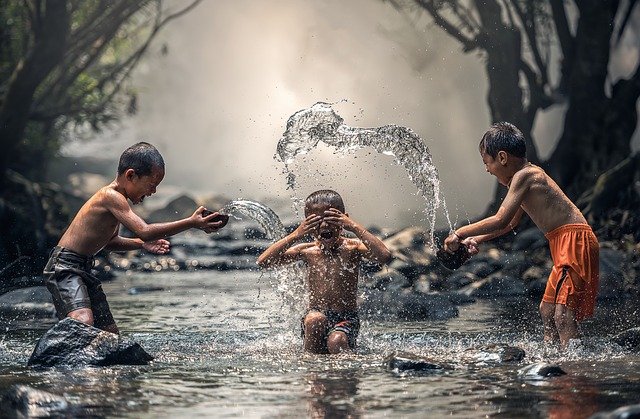Curiosity has a lot of praise heaped on it. But for all that praise, it is in desperately short supply. We live in a time where minds are made up in social groups about complex issues – often without any sort of expertise or evidence, where accusations made against others in public are accepted pronouncements of guilt without a trial, and where questions we want answered are sent through programs that tell us only what they know we want to hear (even though there are better search engines like DuckDuckGo that don’t target us with specific answers). In many ways it has become socially unacceptable to be curious while at the same time praising curiosity as if it is the best thing in the world. Thankfully, children are oblivious to the social pressures that squash our natural curiosity. They march on happily as they stick their hands in the dirt to feel what is there, flush the toilet just to watch the water spin, and paint the walls instead of the paper to see if anything looks different. We are great with this and we think you should be too.
We will personally go as far as to say that being curious is the single most important aspect of a truly fulfilled life. Curiosity is the basis for all of the following things:
– our desire to meet new people including those that become our friends and partners for life.
– our professions which start off as a curiosity big enough to give rise to a desire to learn more and end up as a source of our livelihood.
– our hobbies which are a constantly evolving mix of ways to fill our lives with new and different things to learn – whether that is growing food of all varieties or painting our first picture since childhood. The cherry on the cake is when we discover we want to get better at both.
– our desire to see new places and things which drives our knowledge that the world is bigger than ourselves and our surroundings. This of course further fuels our curiosity.
More important than anything else, curiosity is a thick armor against overwhelming depression. It is what drives us to every new day even when things aren’t going well and don’t seem like they will change. Don’t believe us? The vast majority of what drives our sadness and anxiety when we contemplate our eventual demise is what we will miss and who will miss us. That is the essence of curiosity. What is coming next, why, and when? It is a force so strong that it can carry us through the toughest days. When we lose it, the consequences can be dire. Develop it, cherish it, and pass it on.
For all the emphasis we have placed on curiosity you may expect that what is coming next are some suggestions about how to instill it in your children. But that isn’t what is coming next. Your children are born curious and while they can use your encouragement, they rarely need instruction. What we hope is that the world doesn’t squash their natural curiosity. Yes, as parents it is okay to tell them not to touch everything at the store since it is not theirs. Yes, you can teach them to respect other people’s property and to ask permission before they act. And you can most definitely reinforce with them that some things are really not safe (none of us should be curious enough to walk off the edge of a cliff to see what happens). What you can do is smile when they take out the pots and pans and start experimenting with noise, feeling for textures, and marveling at the different colors and reflections that are warped from the bending of the light hitting the curve of the pot. Enjoy some quiet time on the patio while they dig in the dirt and find an array of small life forms to watch and learn from. Better yet, join them. Ultimately, knowledge gained by our own experiments and actions is priceless. By supporting their desire to answer questions on their own you are not only supporting them in becoming lifelong learners, you may just be enabling them to support themselves when times get really tough.





